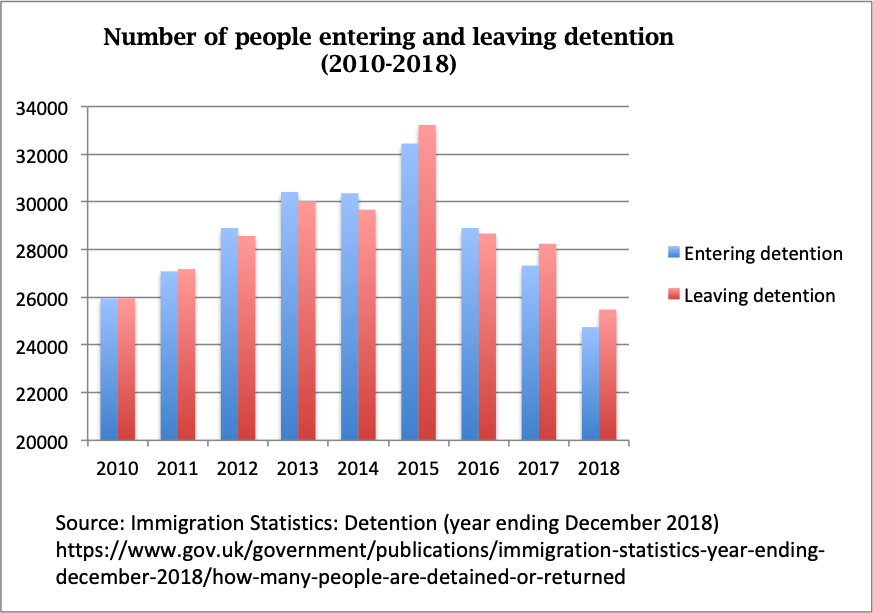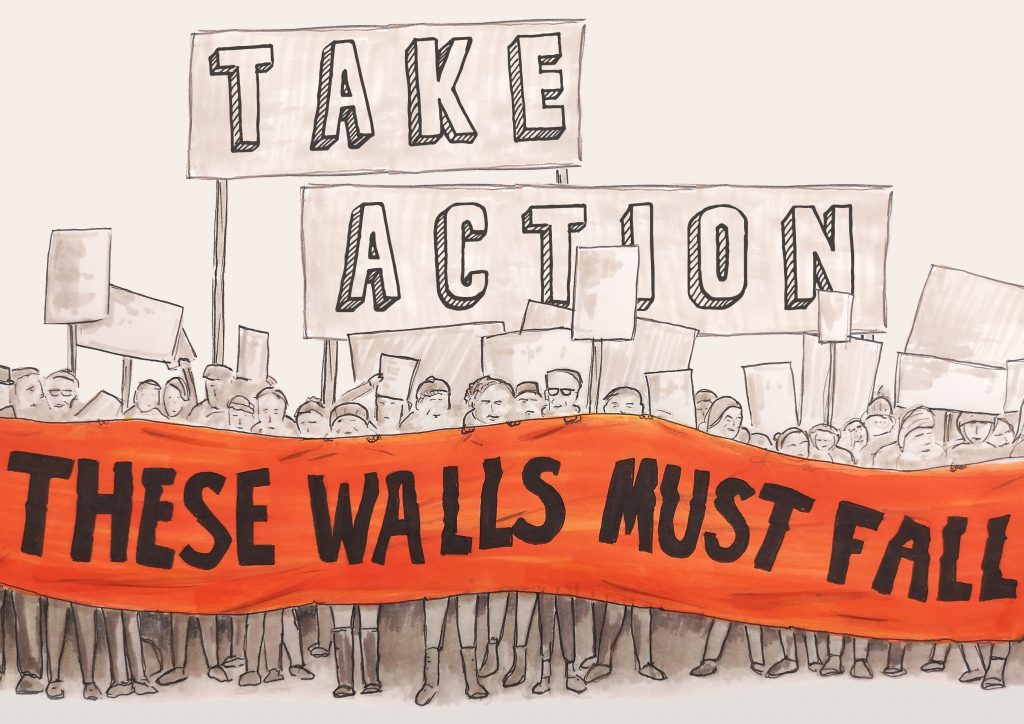The latest government immigration statistics give us some positive news on detention, and show that we are really making a difference, but we still have a long way to go.
In summary:
- Numbers of people detained annually has been falling since 2015 (although there was a small increase over the last 3 months).
- People are in general detained for shorter periods (although half are still detained for over a month)
- Increasingly more people are released back to their lives in the UK (61%) rather than being deported from detention (39%)
However, it remains the case that everyone who enters detention is suddenly snatched away from their life on the say-so of a faceless civil servant, and imprisoned indefinitely in a far-off detention centre with no idea of when they might be released.
Detention is a traumatic, violent act. The indefinite nature of it is sickening. More and more people are getting to hear about this scandal, and are taking action to abolish this shameful system. We are making progress.
There is clear evidence that the Home Office has got the message that they have to do something. The detention system grew from a few hundred people detained annually in the 1990s to an incredible 32,447 people in 2015, when almost 4,000 people were detained indefinitely at any one time.

As numbers continued to grow under the New Labour and Conservative governments, voices in opposition began to be raised. However, criticism of detention was largely carried out solely by specialist NGOs (apart from the issue of detention of children, which garnered wide public support). Political support for the campaign against detention, with some honourable exceptions, was barely there. When injustice and cruelty was highlighted in reports and exposés, it was mostly ignored or dismissed by government. This was particularly so under Theresa May as Home Secretary from May 2010 to July 2016. In this period alone, over 190,000 people entered detention, 1,180 of them were children.
But now things are changing, and the statistics reflect this. These Walls Must Fall is part of a broad movement challenging immigration detention. This movement has educated and influenced the public and politicians, led to parliamentary inquiries, forced the Home Office into accepting change must come, and led to a reduction in overall numbers detained and the introduction of alternatives pilot schemes.


Read more on these statistics over at the Detention Forum blog
We are making a difference.
And we aren’t stopping until detention ends
In the last few years we have made a real difference. Our job now is to keep pushing, to build on this momentum and make real, lasting change happen. And we won’t stop until the last detention centre is shut down.
Yes, a 28-day time limit would be a significant first step which would take a lot of pressure off people in detention, but it has to be seen as just that – a step in the right direction.
To take away a person’s liberty and imprison them, for even a day let lone a month, is an extraordinarily serious business – or it should be. That it has become routine for the Home Office to do this is cause for outrage. That they are at least acknowledging the seriousness of their actions, making efforts to reduce numbers, and making noises about reform gives us hope and confirmation that we are making a difference.
So lets make this bigger. Lets take action. Are you with us?

